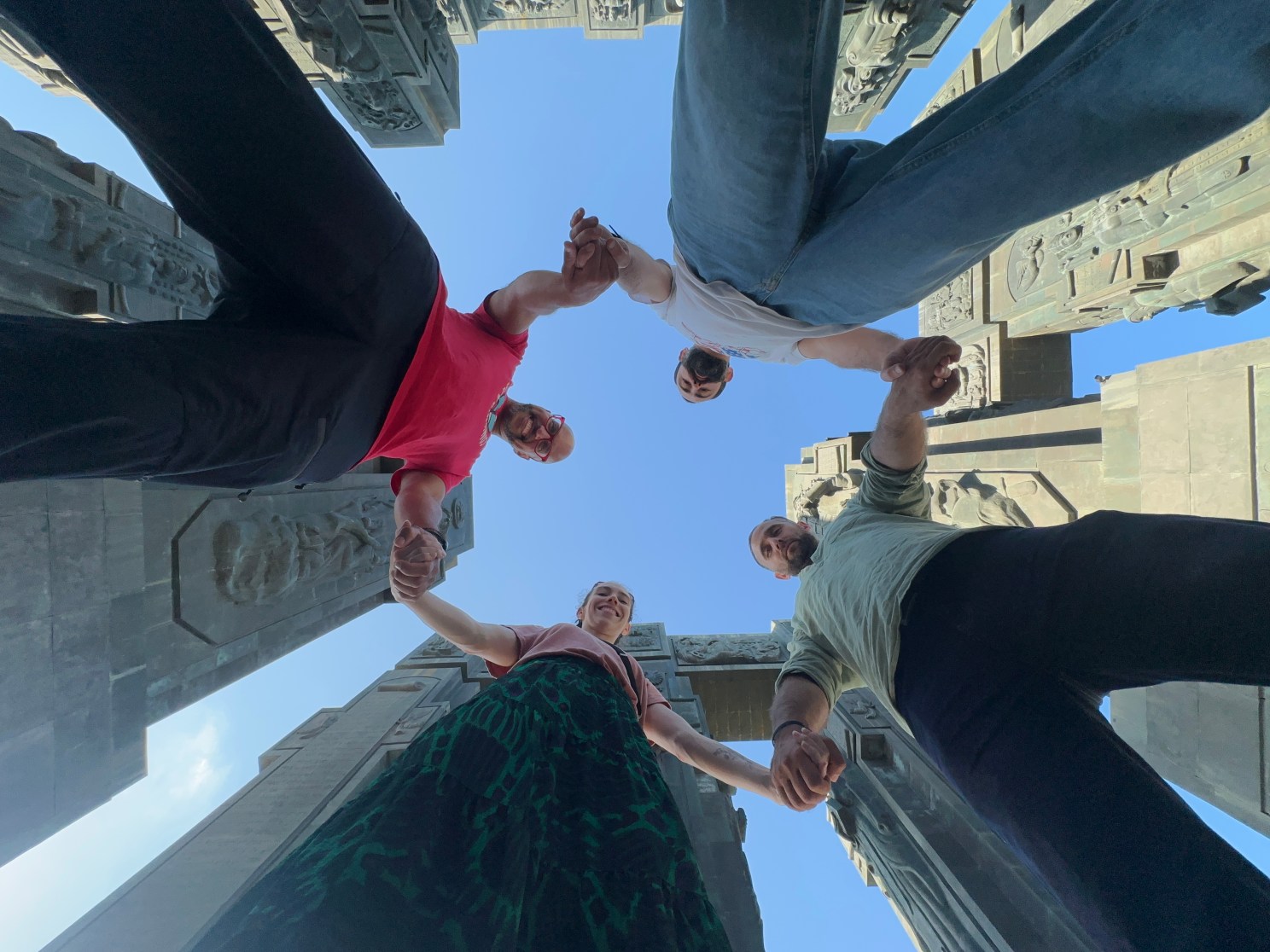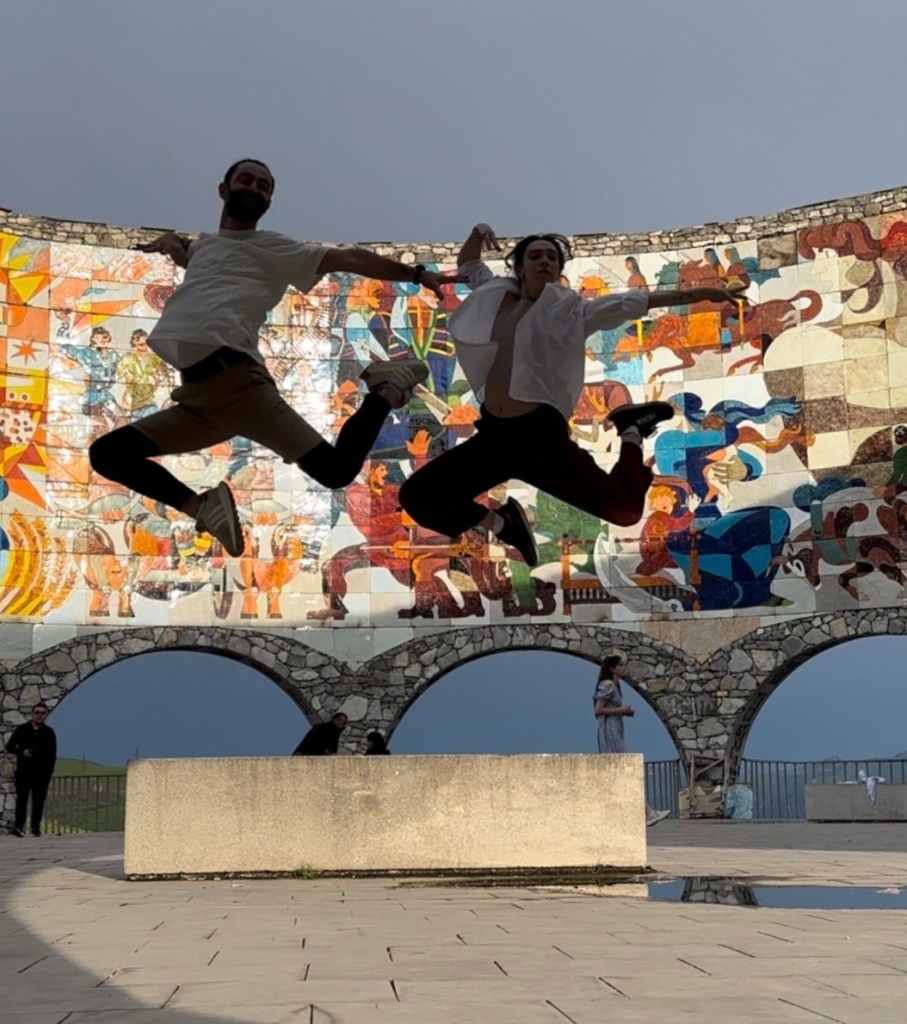Artist exchange program builds bridges with nation of Georgia

Founded in 2023, Exchange Notes was designed to bring U.S. culture to Georgia and Georgian culture to the U.S. The year’s artists are (clockwise from left) Marcus Santos, Lasha Mdzinarashvili, George Oniani, and Claire Lane.
Courtesy of Davis Center for Russian and Eurasian Studies
On his first visit to Tbilisi, percussionist Marcus Santos was struck by the tight relationship between music and movement.
“In Georgia, most drummers can really dance and most dancers can really drum,” he observed.
Santos was one of two Somerville-based artists selected for this year’s Exchanging Notes initiative, an artist exchange offered by the Somerville Arts Council and Program on Georgian Studies at the Davis Center for Russian and Eurasian Studies. The project’s 2024 cycle will culminate Sept. 21 with a pair of performances in Somerville. Tickets are free but advance registration is required. A chance to learn about Georgian culture and mingle with the artists will be offered on campus two days earlier.
Founded in 2023, Exchanging Notes was designed to bring U.S. culture to Georgia and Georgian culture to the U.S. Santos, a music educator and contemporary drummer with Afro-Brazilian roots, spent a week in Georgia this summer collaborating with George Oniani, a percussionist who also serves as artistic director of a folk-culture school in the city of Kutaisi.
Santos found Georgian drumming to be as community-oriented as Afro-Brazilian forms but more physically expressive, with fewer layers of sound than the ensembles he typically plays with. The Georgian tradition features a richer integration of movement and music, said Santos, who grew up in Salvador, Brazil. “I found Georgian drummers were more likely to have a deeper connection with the dancers.”
Also participating in Exchanging Notes this year was Somerville dance artist Claire Lane, who was paired with Tbilisi-based dancer/choreographer/movie stuntman Lasha Mdzinarashvili. While Lane was visiting the Georgian capital, the Davis Center posted a video that previewed their dynamic integration of styles.
“For a long time it had been my dream to travel internationally and use dance as a form of cultural exchange and diplomacy,” Lane shared.

She, too, was struck by the tight relationship between movement and instrumentation. But equally fascinating to the co-artistic director of detritus dance, a feminist collective, were the strict gender roles in traditional Georgian dance.
“There is a vocabulary that the women perform and vocabulary that men perform,” Lane said. “I feel very lucky that Lasha taught me both the men’s and the women’s roles.”
Two Exchanging Notes programs — one at 6:30 p.m. and another at 8:30 p.m. on Sept. 21 — promise more bridging of traditional and contemporary forms from the U.S. and Georgia, with an underpinning of Afro-Brazilian rhythms courtesy of Santos. Joining all four artists on stage will be members of his local youth drumming troupe.
Also on the Exchanging Notes itinerary is a Sept. 19 conversation on campus with the artists. The free event at Tsai Auditorium will kick off with a 30-minute talk on Georgian culture by musicologist Nana Sharikadze, associate professor at the Caucasus University and at Sarajishvili Tbilisi State Conservatoire. A reception with Georgian wine and snacks will follow, letting guests speak with the artists and ask questions.
For more information on Exchanging Notes, visit daviscenter.fas.harvard.edu.




